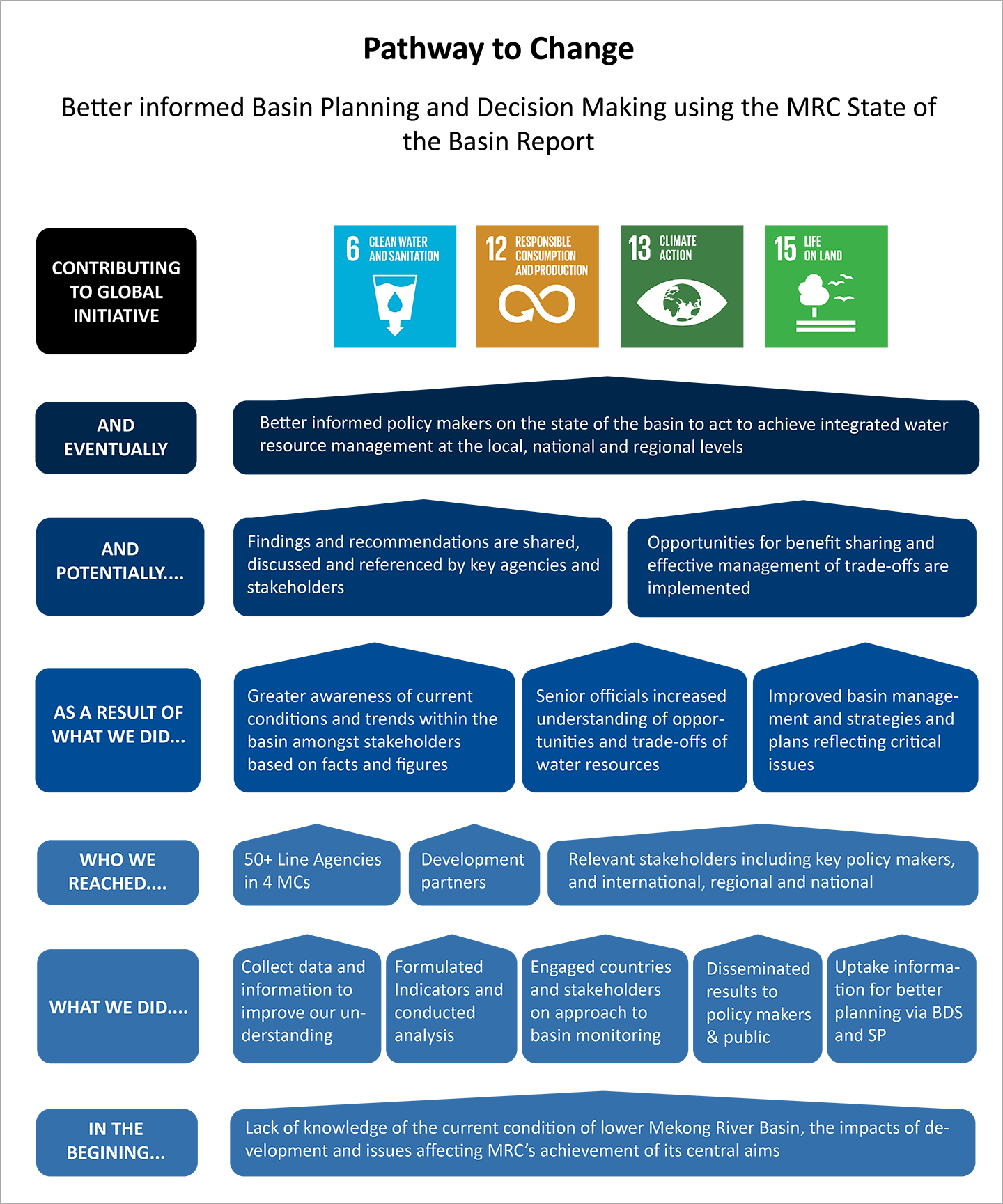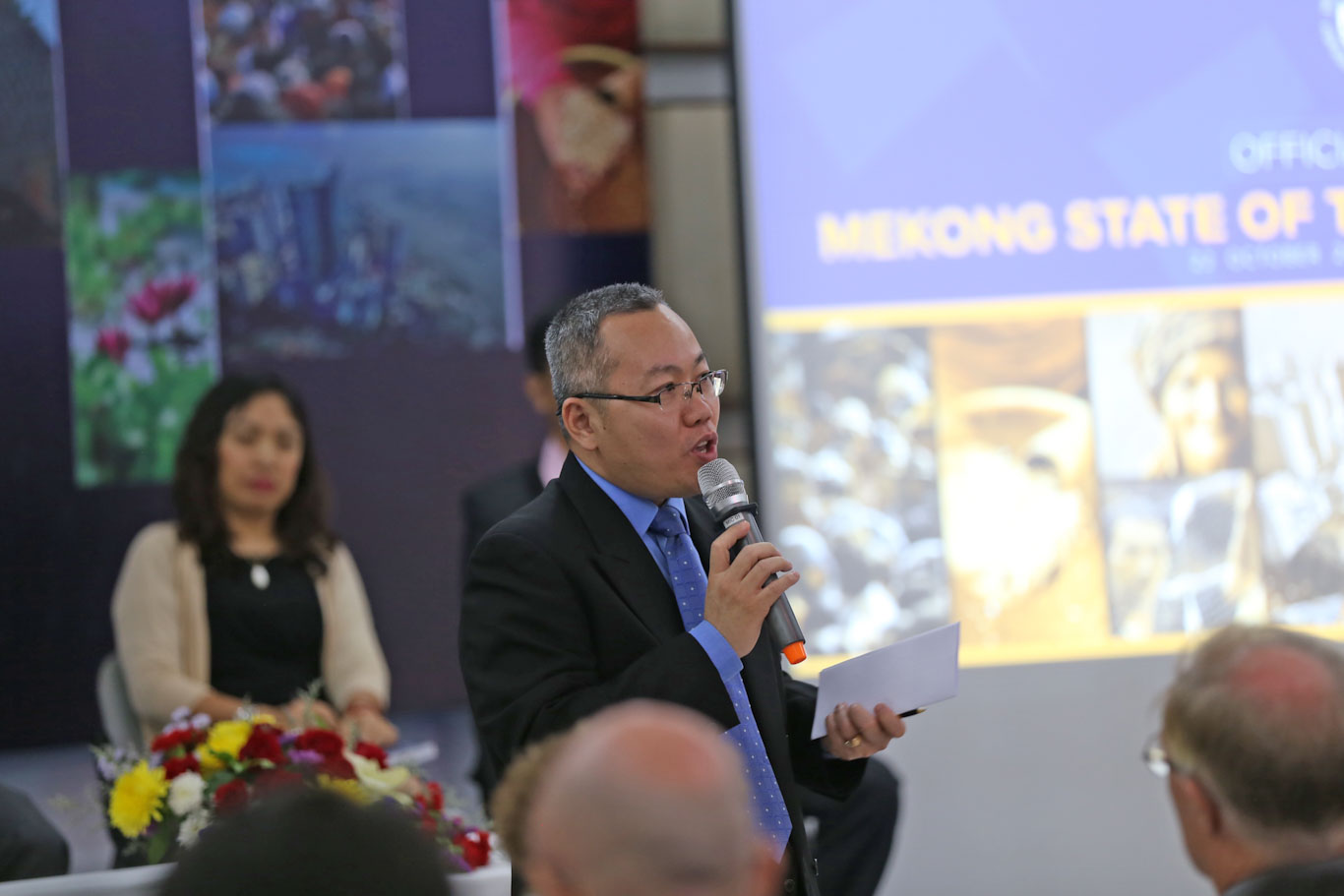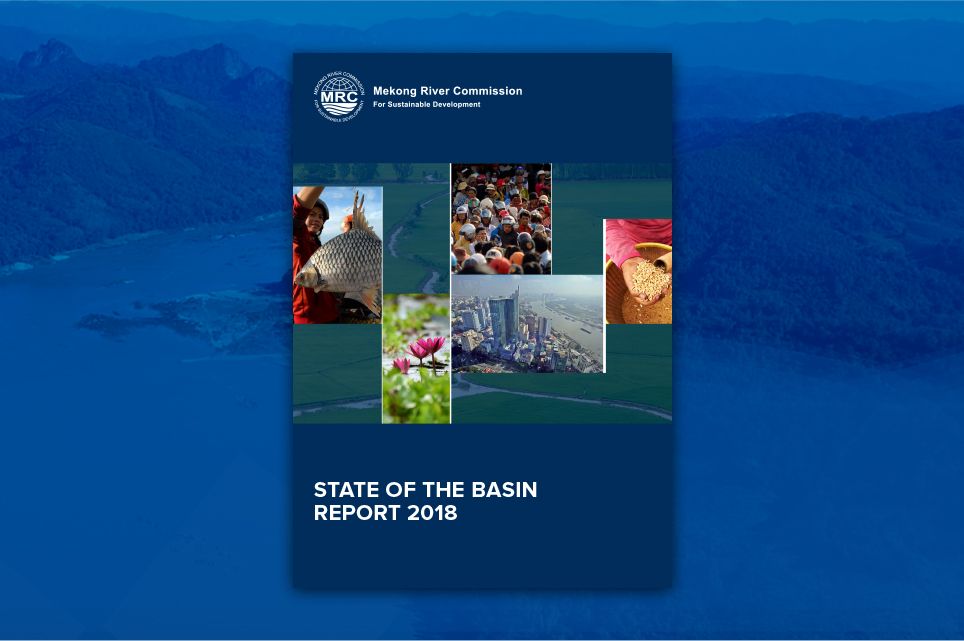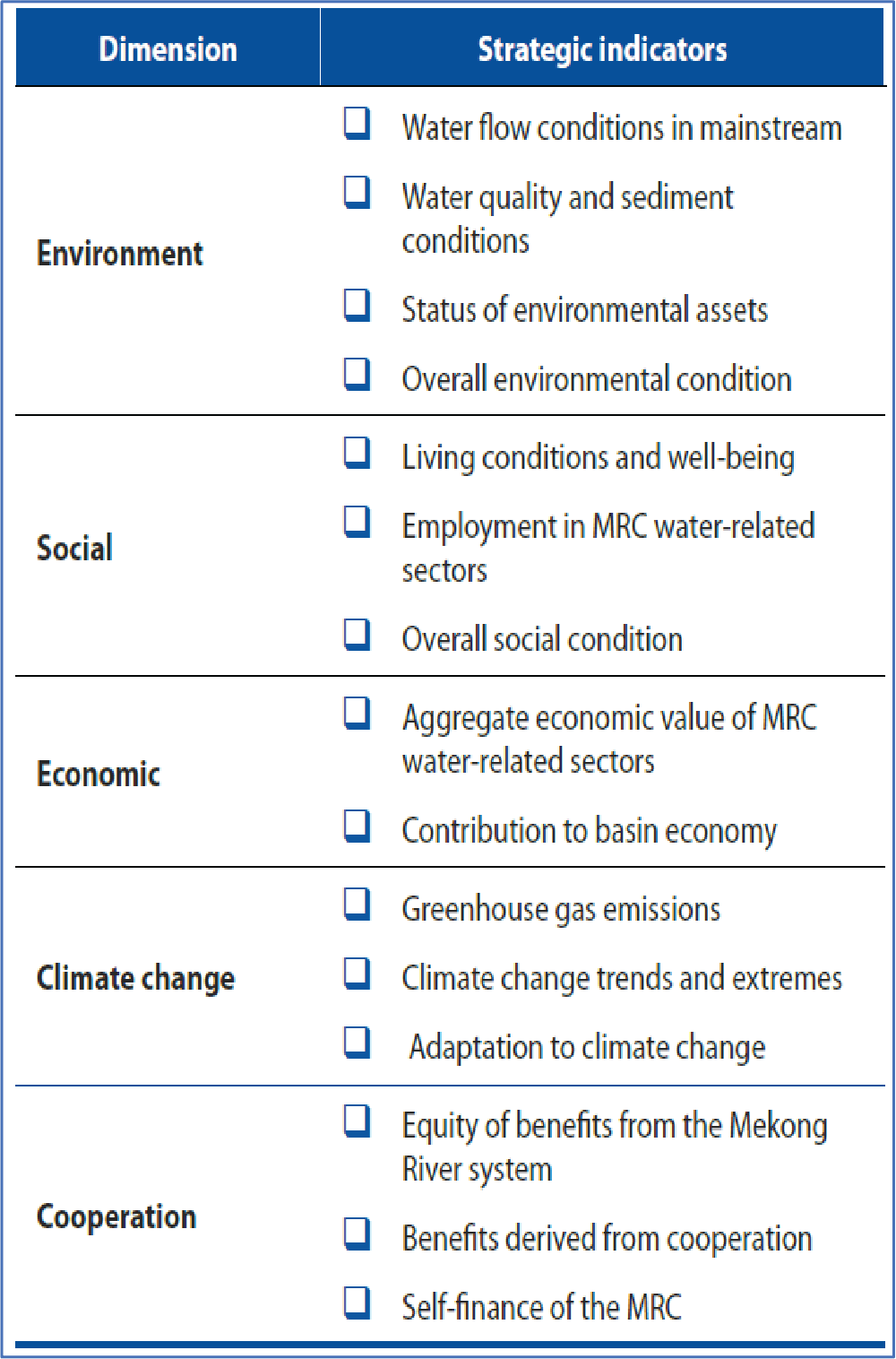OUTCOME 1 - SUCCESS STORY Better informed Basin Planning and Decision Making using the MRC State of the Basin Report
Indicators:
- Evidence of national and regional decisions made based on or referring to MRC knowledge products
- The extent to which Line / Implementing Agencies use MRC reports and information systems for better decision making (Outcome 6)



Highlights
The MRC State of Basin Report (SOBR), a flagship product of the organisation and an integral part of its strategic planning cycle, was completed and published in July 2019. Based for the first time on the new Mekong River Basin Indicator Framework (MRB-IF), formerly MRC IF, that establishes a comprehensive and consistent set of indicators covering all aspects of Mekong basin development and management, the 2018 SOBR provides an overall picture of the state of the Mekong Basin in terms of its ecological health, the social and economic circumstances of Mekong countries and their people, and the degree to which the cooperation between the countries is enhancing these conditions.
The third in its series, the report reflects progress in achieving the aims and commitments set forth in the 1995 Mekong Agreement, and identifies critical issues and development opportunities that MRC Member Countries (MCs) must consider when making corrective actions and updating the Basin Development Strategy during the next strategic planning cycle.

2018 SOBR Key Findings and Recommended Priority Actions
The key findings and recommended priority actions are provided in detail in Table 3. In summary, the findings for each of the five dimensions are summarized as follows:
Environmental conditions: Reservoir developments in the basin have caused a significant change in the flow regime of the Mekong and are contributing to the observed substantial decrease in sediment concentrations. The long-term consequences of these changes need to be managed to minimise environmental harm whilst leveraging the benefits of more secure dry season flows. The loss of wetlands and riverine habitats continues alongside increasing pressures on capture fisheries, and urgent actions are needed to protect remaining assets before they are lost.
Social conditions: Living conditions within the basin are improving, but much better information is needed to identify specific water sector impacts and to determine where vulnerabilities lie.
Economic conditions: Substantial economic benefits are being derived in water-related sectors, but a comprehensive assessment of equity between countries and trade-offs between sectors is not yet possible with the available data. A proactive and cooperative approach to basin planning is needed to achieve optimal and sustainable development of the basin in line with MRC’s aims.
Climate change: Both temperature and sea level are rising, but other predicted aspects of climate change are not yet evident. MCs are all engaged in managing climate change and this should be reinforced through the MRC’s regional basin planning efforts.
Cooperation: New challenges arising from flow regime changes, sediment reduction, and growing pressure on environmental assets and fisheries reinforce the need to build upon existing cooperation through regional planning and joint projects, investments and monitoring.
The 2018 SOBR Key Recommendations for the Next Basin Development Strategy
- Continue and enhance monitoring of flow conditions and water quality
- Develop and implement an MRC Data Acquisition and Generation Action Plan
- Address the problem of reduced sediment concentrations
- Address the need to take urgent action to preserve and protect remaining environmental assets
- Adopt a more proactive approach to basin planning and the management of trade-offs between sectors and countries
The following six recommendations are to be considered when updating the Basin Development Strategy.